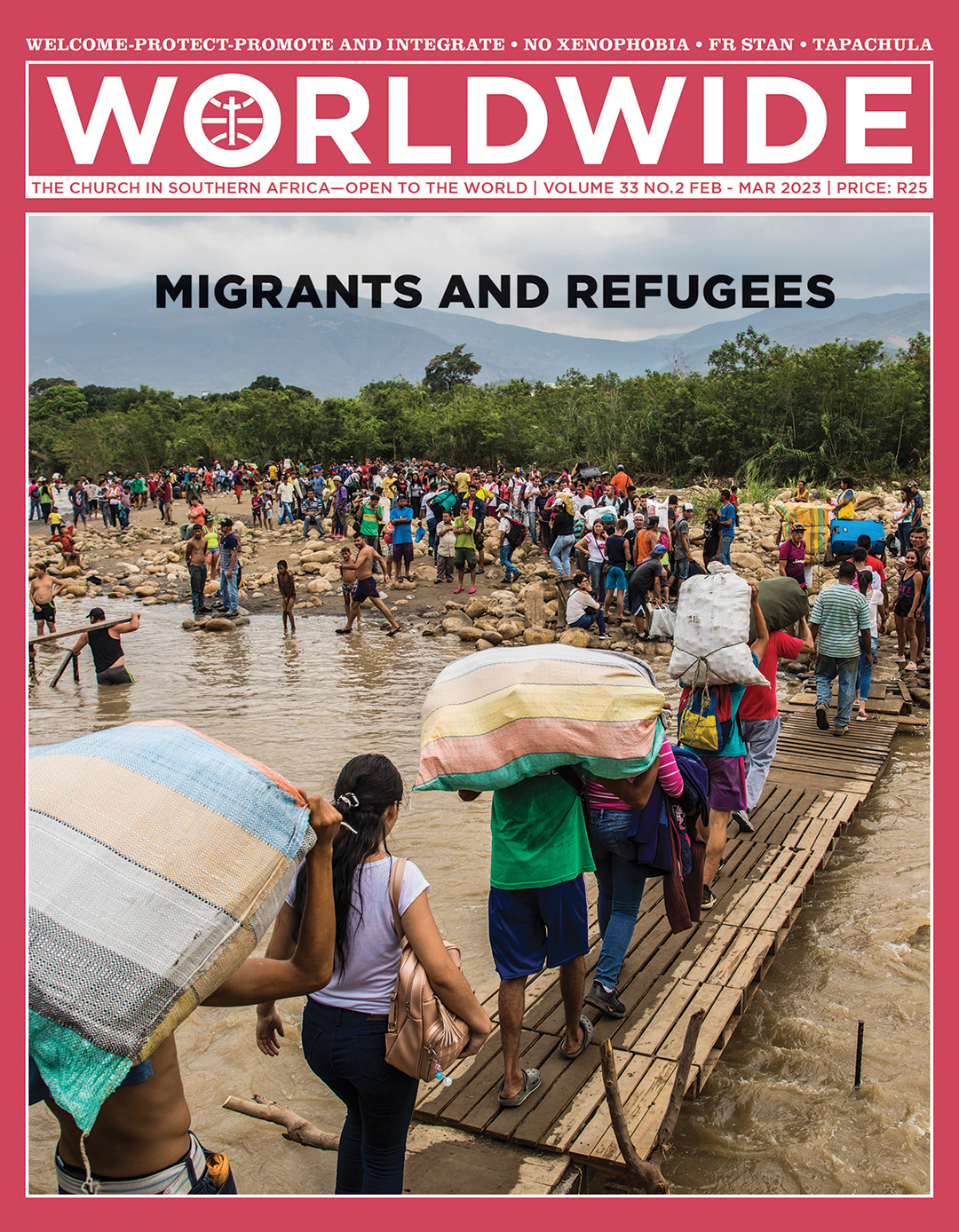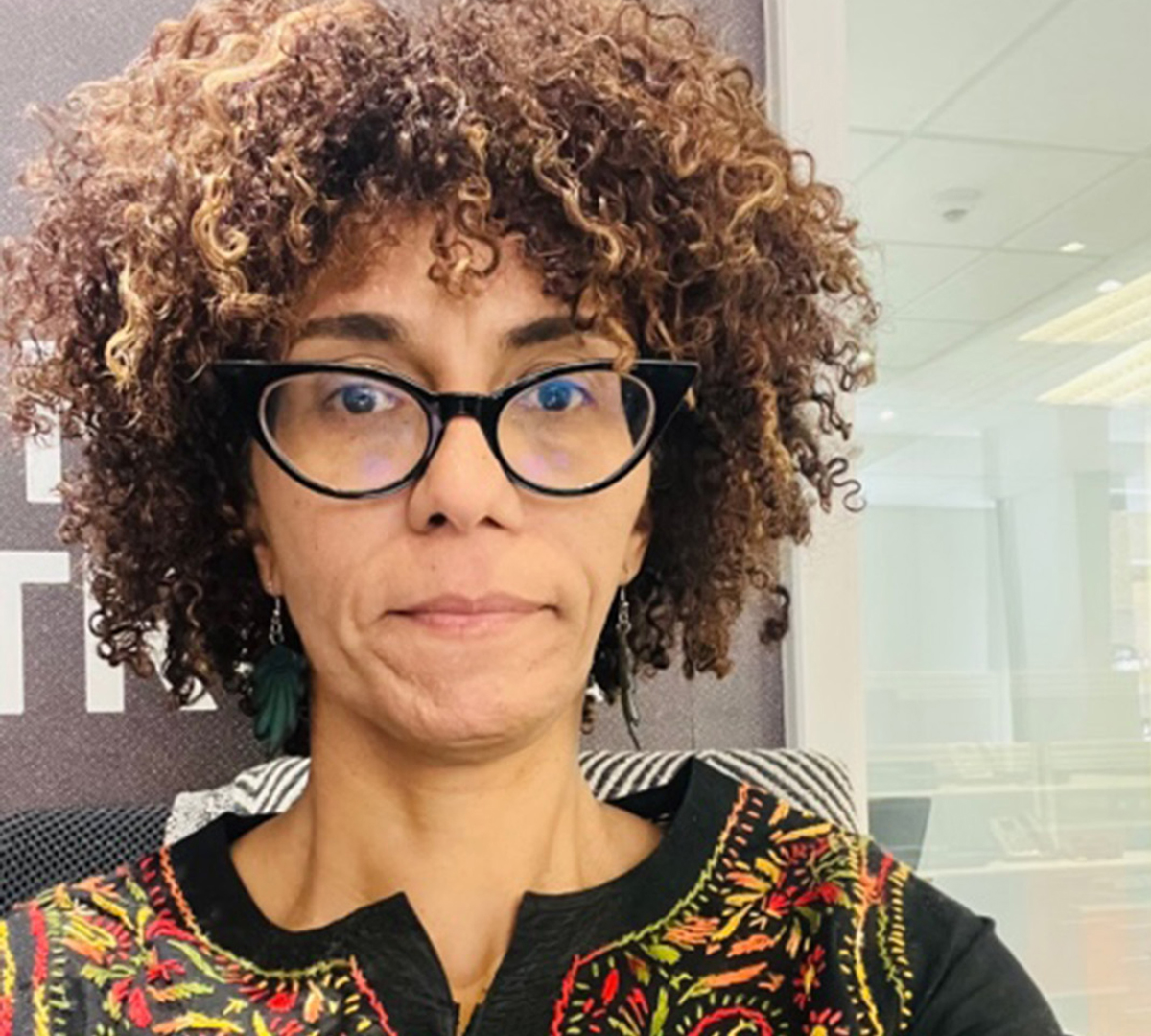FEATRUES • SR MARIA DE LOURDES LODI RISSINI
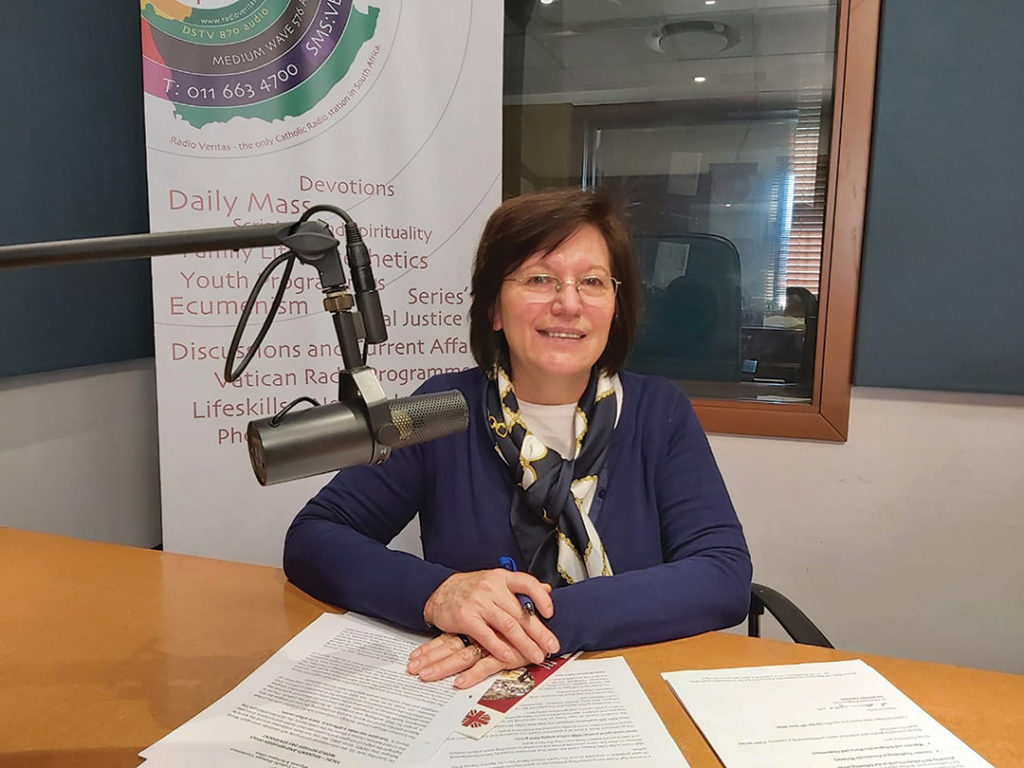
PASTORAL CARE OF MIGRANTS: WELCOME, PROTECT, PROMOTE AND INTEGRATE
Sr Maria De Lourdes Lodi Rissini, a Scalabrinian Missionary Sister hailing from Brazil, has been working in South Africa for more than ten years. Currently, she is the National Co-ordinator of Caritas South Africa and Co-ordinator of the Migrants and Refugees Office for South Africa, Botswana and Eswatini on the South African Catholic Bishops Conference (SACBC). Here she shares about this important service in the Church
BY
RAFAEL ARMADA MCCJ
| PRETORIA
SR MARIA LODI RISSINI | SACBC MIGRANTS AND REFUGEES OFFICE
What is the estimated population of migrants and refugees in the SACBC region and what are their main nationalities?
The number of people living in South Africa born in other countries was estimated in the 2022 Africa Migration Report to be about 4.2 million, or 7% of the total population of the country. Among them are more than 250 000 refugees and asylum seekers from countries such as Burundi, the Democratic Republic of Congo, Rwanda, South Sudan, Somalia and Zimbabwe.
What are their main urgent needs?
They have a variety of needs according to the reasons for their immigration to South Africa. For most, South Africa offers economic opportunities. Asylum seekers and refugees are coming for safety purposes due to persecution and wars. In Africa, approximately 30 million people are displaced due to environmental hazards. Those asylum seekers or refugees coming from an unskilled background have more needs than others. They need counselling, access to family tracing services, legal and migration advice regarding their documentation, interpreters/translators, health and mental health care, and access to education. Upon arrival, they have urgent basic needs such as nutrition,
clothes, shelter, domestic items and access to government services, such as Home Affairs, Health and Education.
What types of exploitation are they mostly exposed to?
Most of them are exposed to exploitation from the time they depart towards South Africa. On their way, most women are victims of robbery, rape, torture and hunger, often including their children. Once they are in South Africa, immigrants are exposed to robbery, slavery, sexual abuse and labour-related abuses, exploitation, corruption in public services, (such as Home Affairs), and xenophobic behaviour by officials, including harassment.
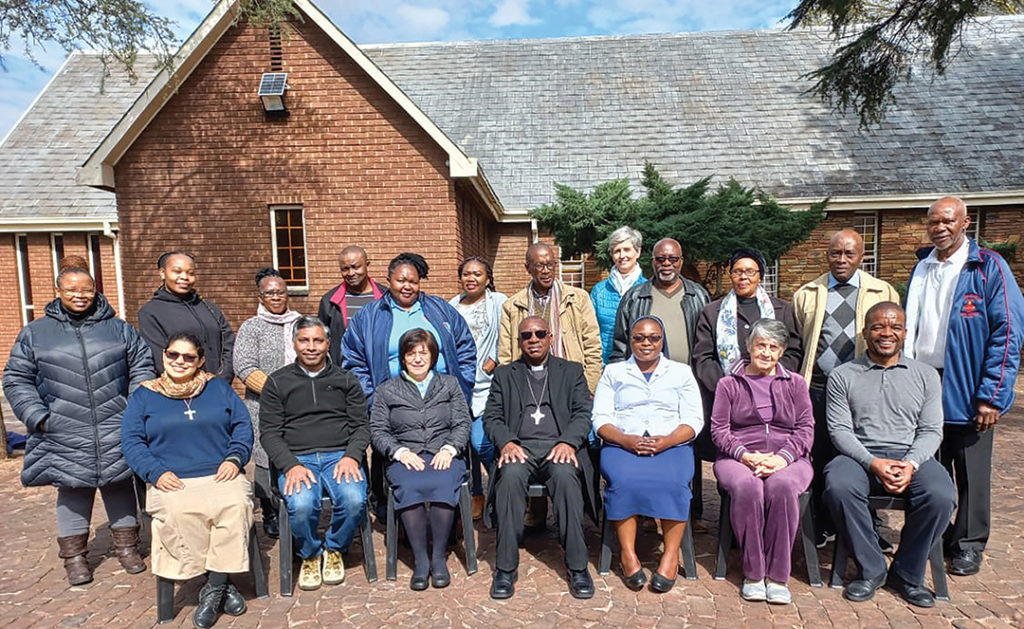
What kind of help do they seek when approaching the Catholic Church?
In general, when they approach the services of the Catholic Church, they ask for assistance related to food, nutrition for babies, clothing, domestic items, school stationery, school uniforms, payment of rent, assistance for funerals, legal assistance for documentation, access to Home Affairs, transport, medication, access to health, skill training, help to study English and local languages and to have access to work or to start small businesses.
On March 2022, you were recognised as a Distinguished Knight of The Order of the Star by the President of Italy. What does that award mean for you?
I was not aware that I was being considered for an award. I felt honoured to receive that distinction from the President and the Government of Italy, through their Embassy and Consulate in South Africa.
I dedicate this important award to God who called me to serve Him in different countries. The mission as a Scalabrinian Missionary Sister has been enriched by the diversity of people whom I have met and served during my life. This is part of the Mission of the Church and the calling I received, of putting into practice the invitation of Pope Francis to welcome, protect, promote and integrate migrants and refugees through Caritas and Pastoral Care.
I am grateful to many people who are working with me and I consider them also as co-recipients of this award even though I am unable to mention them all. I just mention a few of them, the Scalabrinian Congregation; the Bienvenu Shelter; the Catholic Archdiocese of Johannesburg, especially Archbishop Buti Tlhagale for being an inspiring leader and for his continuous support and encouragement to respond to the challenges imposed by modern society; the SACBC, especially those who are part of its Migrants and Refugees Office; and Caritas South Africa. This award includes all the people that are part of my history. I am grateful to them all.
How successful has the Church’s response in southern Africa to the invitation made by Pope Francis been? What challenges still lie ahead?
The Bishops during their Plenary meeting of February 2019, decided that a coordinated response is needed to the plight of migration in all dioceses of the SACBC region. They approved common resolutions to implement the Pastoral Care for Migrants and Refugees in their respective dioceses and parishes.
In order to implement this structure, the SACBC Migrants and Refugees Office provided a common tool for training and formation programmes for Pastoral Care agents and distributed it to all 29 dioceses.
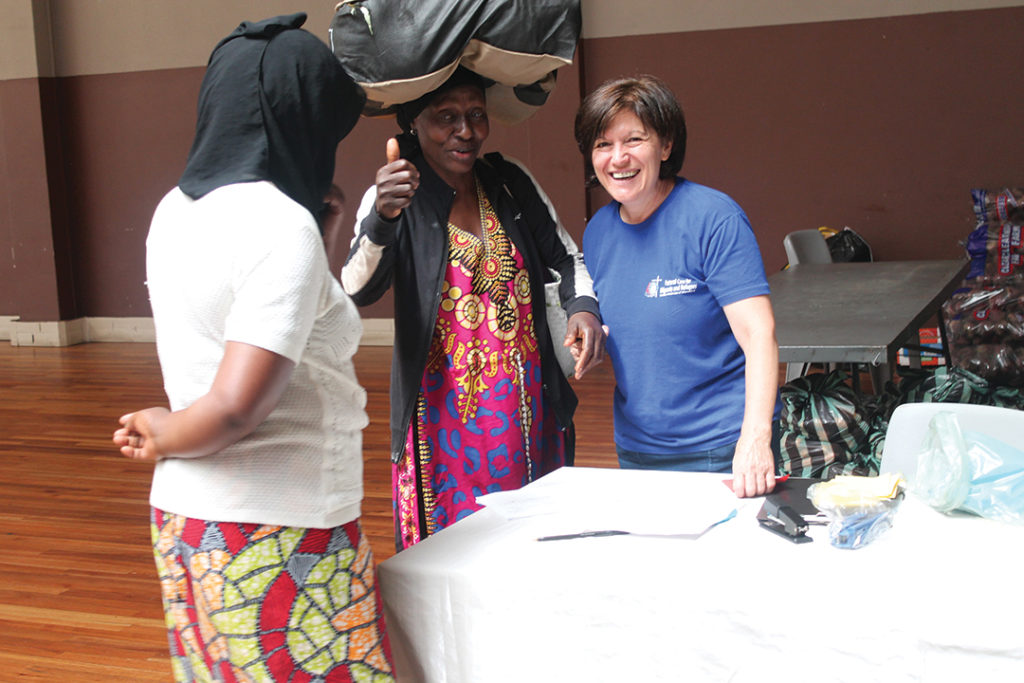
Formation/training for leaders took place in 18 strategic arch/dioceses which are bordering the different countries or entry ports to South Africa. Afterwards, the arch/diocese can train its volunteers and collaborators. The four verbs used by Pope Francis, welcoming, protecting, promoting and integrating migrants are included in the formation programme and structure of the office at the diocesan level. This plan helps to better address the challenges of migrants and refugees.
Since 2020, Archbishop Buti Tlhagale OMI of Johannesburg is part of the Multi-Religious Council of Leaders of the United Nations High Commission for Refugees (UNHCR) and Religions for Peace. He is also the High-Level profile to prevent Statelessness and the UNHCR # I Belong Campaign.
Some of the challenges we face are related to the economic situation of southern Africa which does not permit us to have enough human and material resources to better run our socio-pastoral programmes.
The environment and reality that migrants and refugees live in are exposing them to more vulnerabilities, exclusion and poverty.
What is the role and activities of the Diocesan co-ordinators for migrants?
We aim that each Pastoral Parish Council (PPC) identify, elect or co-opt a subcommittee among its members whose functions/roles could be:
- To co-ordinate migrants’ and refugee
affairs within the parish community. - With the assistance of the rest of the PPC,
facilitate, create and promote a welcoming
and hospitable parish community. - To create a discussion forum on issues
of concern to both migrants and the
local communities. - At the parish level, liaise with the religious
and NGO groups that are involved
in migrant issues. - To plan and adopt best practices concerning
the assistance given to migrants
and refugees. - To co-operate with other organizations
such as Caritas, St Vincent de Paul, Catholic
Women’s League and the Knights of
Da Gama in their charitable activities. - To facilitate the provision of language
lessons, if needed. - To pay special attention to the needs of
migrants’ children. - To facilitate the integration of migrants
into the local community. - To find ways and means of dissuading the
local community from taking out their
dissatisfactions on the migrant community. - To help migrants to cultivate their faith and
respect their beliefs, including prayers of
reconciliation and bereavement. - To prevent statelessness.
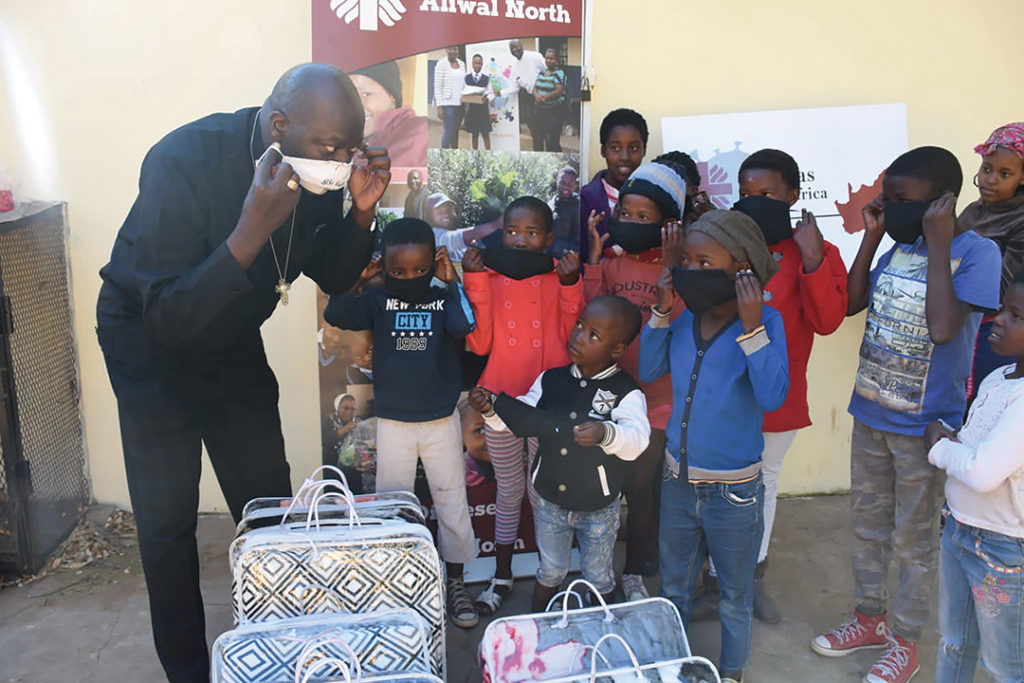
To implement these activities financial/material resources are needed. Churches are offering humanitarian support to many people in need. This is a challenge for all the faithful to work together in unity and solidarity.
How is the Church counteracting xenophobic attitudes in our society?
The Church tries to quickly respond to victims of xenophobia by providing food, shelter, clothes, and medical assistance in solidary with their pains and loss.
The Church in South Africa guided by its leaders, denounces xenophobic or Afrophobic attitudes. The SACBC Liaison Bishops for Migrants and Refugees has issued various statements and Pastoral Letters to South Africans and non-South Africans against xenophobia. They invited the Government to play its role to bring to account those who promote xenophobia. The South Africa Council of Churches together organised roundtable discussions, prayer sessions and statements against xenophobia. The Church, in general, is mobilizing and promoting peace, reconciliation, and respect, principles of common ethics for all people of different cultures. One of the principles of democracy is respect for the rights of movement. The Social Teaching of the Catholic Church is also very clear regarding human dignity. The Church continues to give awareness to their communities to live with respect and harmony.
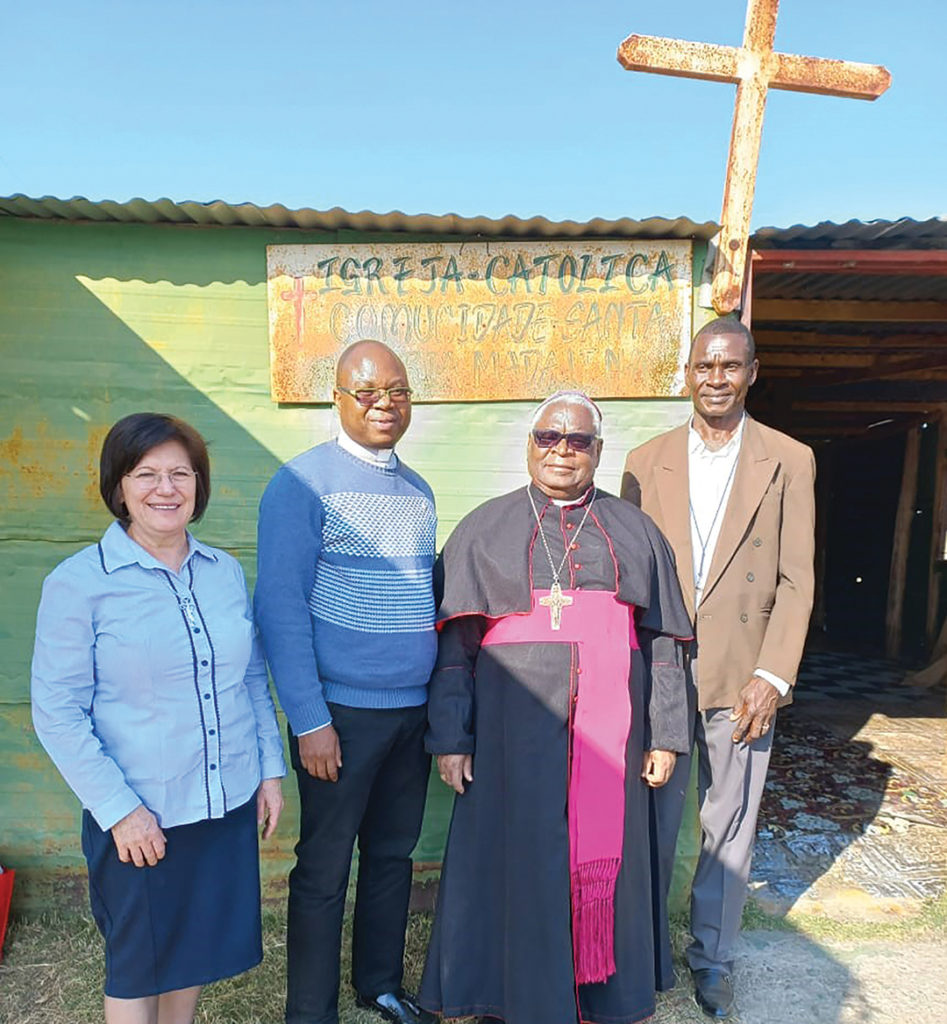
Bishop Atanasio in his Pastoral visit to Mozambican communities and
miners residing in South Africa. St Magdalena Church, Rustenburg.
What would you invite the readers of Worldwide magazine to do faced with this situation?
I would like to invite all people of God to combat xenophobia. I believe this is the responsibility of each human being, as God made us all in His own image. In our social space, we can live out our duty as a public witness to the reign of God, opposing these kinds of attacks which cause deep entrenched pain and hatred.
We are called to engage with our churches and civil society to create a safe environment that is good for all. It implies moving from our selfishness to thinking of others. We also need to have a co-ordinated strategy with other stakeholders and agencies in order to come up with a more lasting and effective plan to prevent future re-occurrences of such brutal attacks.

